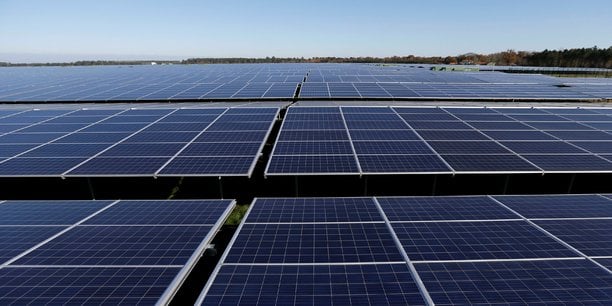By 2040, Japan plans to radically transform its energy landscape by embarking on an unprecedented push towards renewable energies. Ready to embrace a new era, the country aims to have 40 to 50% of its energy production colored by this sustainable power source. Tokyo is thus committed to a bold project, balancing technological innovations and ambitious investments, to ensure carbon neutrality and reshape its energy future.
Japan has announced an ambitious project aiming for renewable energies to account for 40 to 50% of its energy consumption by 2040. This initiative is part of a strategy to make renewable sources its primary source of electricity and achieve carbon neutrality. To accomplish this, the Japanese government plans enormous investments and a transformation of its energy mix. This bold bet demonstrates Tokyo’s commitment to reducing its dependence on fossil fuels and promoting a more sustainable future.

Japan and Its Ambitious Bet on Renewable Energies
Japan is embarking on a bold project aimed at making renewable energies its primary source of energy by 2040. This goal, which aims to raise the share of clean energies to 40-50% of its energy consumption, represents a true turning point in the country’s energy strategy. The country, although lacking abundant natural resources, relies on innovative technologies and massive investments to achieve this sustainable transformation. This ambitious bet could shape not only Japan’s energy future but also inspire global policies on green energies.
The Challenges to Overcome for a Successful Energy Transition
Achieving such a transformation requires the realization of colossal projects, particularly in developing the necessary infrastructure to integrate renewable energy sources. The challenges are numerous: it involves modernizing existing electrical grids as well as constructing new, adapted facilities. Furthermore, Tokyo will need to tackle the challenge of adaptability by modifying its grid to effectively manage intermittent energies such as solar or wind. This approach will require long-term political and economic support, as well as significant technological mobilization.
Economic and Societal Impact of Japan’s Energy Transformation
The shift towards a greater share of renewables in Japan’s energy mix could have significant repercussions on the economy and society. By increasing the share of clean energies, Japan hopes to reduce its energy dependency and encourage a decrease in costs in the long run. Moreover, this transformation will promote job creation in the energy sector and stimulate technological innovation. In parallel, a significant reduction in carbon emissions could improve the quality of life for citizens and serve as an example for other nations seeking sustainable development.
Articles similaires
Thank you!
We will contact you soon.














